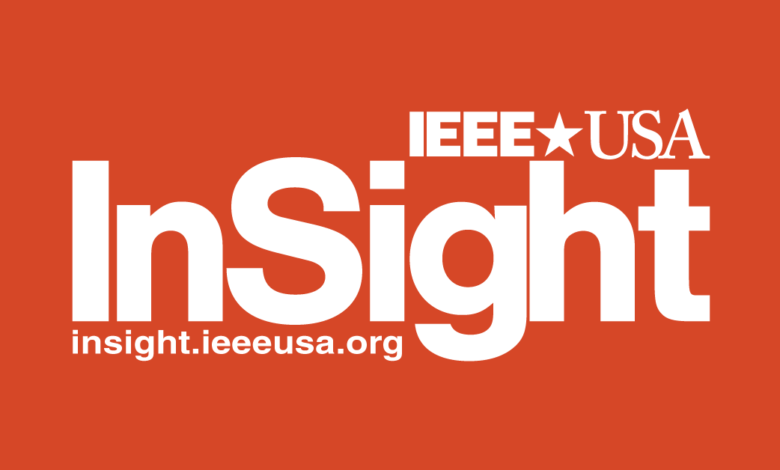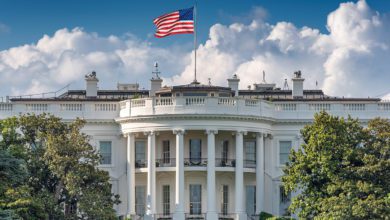
It’s rare to find a major piece of federal legislation that leaves everyone entirely happy. The comprehensive immigration reform bill is a good example.
For the most part, IEEE-USA is pleased with proposed changes in the bill’s high-skill immigration sections that passed the Senate Judiciary Committee in May. The bill passed in the Senate on 27 June, 68-32.
In particular, IEEE-USA likes the expansion of employment-based green cards for foreign nationals who earn master’s and doctorate STEM degrees from qualifying U.S. colleges and universities. The H-1B temporary visa program adjustments elicit a mixed response.
“While this isn’t the bill we would have written, the green card provisions will prove much more important than the H-1B increases,” IEEE-USA President Marc Apter said. “Unlimited green cards provided as soon as STEM grads are hired will create and keep jobs in America, while the increased fees and worker protections for H-1Bs will show high-tech employers that they’d be better off hiring people on green cards.”
IEEE-USA has championed many of the proposed high-skill provisions found in the Border Security, Economic Opportunity and Immigration Modernization Act (S.744). Sections strengthening existing safeguards for U.S. and foreign workers include, among others, those that:
- Require all companies using H-1B visas to pay visa holders a more accurate prevailing wage
- Require all employers to post detailed job opening descriptions on a searchable Labor Department Website for 30 days before petitioning for an H-1B worker
- Prohibit H-1B-dependent employers – those with at least 15 percent of their employees working on an H-1B visa – from displacing one of their American workers 180 days before or after hiring an H-1B visa holder. The prohibition is 90 days for some dependent companies.
- Prohibit H-1B-dependent employers from outplacing, outsourcing or leasing H-1B workers to secondary companies
Restrictions on H-1B activity, which many people liken to indentured servitude, should not only benefit foreign high-tech workers, but also Americans.
“When you take away cost advantages and indenturing advantages, I think American workers will do well,” said Bruce Morrison, a former member of Congress who represents and advises IEEE-USA on immigration matters. “I think American workers have been disadvantaged by the undercutting of wage rates and the ability of employers to control people with legal mechanisms, rather than with fair compensation and good working conditions. When foreign-born workers are not subject to employer control through the H-1B, American workers, with all their competitive talents, will be very attractive to employers.”
Under the proposed law, H-1B employees will no longer feel compelled to stay with their H-1B-sponsoring employer, for fear of losing their spot in line for a green card.
So, while current law makes it possible for an H-1B employee to move to a new job if a new employer sponsor them, if the worker wants a green card-as nearly all H-1B’s do-moving to a new employer before their green card is issued means the application is withdrawn, and the worker has to start all over. S.744 rectifies this by making the H-1B visa portable.
“This change is key, because it means once the U.S. government approves the green card petition, the worker is no longer bound to the employer,” said Apter, adding that he thinks international STEM workers deserve to be treated fairly and equally.
“These are professionals,” he said, “and they should be treated as professionals.”
More Changes to the H-1B Visa Program
IEEE-USA is also pleased that the issue of potential gender bias in the H-1B program, as raised in March by IEEE-USA Vice President Dr. Karen Panetta at a Senate Judiciary Committee hearing, will receive attention from the Department of Homeland Security.
In a story published 19 March, The San Jose Mercury News reported that about 70 percent of H-1B visa holders entering or re-entering the United States in 2011 were men.
“We’re really the authors of the whole focus on gender equality,” Morrison said, “and there will be regular reporting on that, and a number of issues, which will highlight some of the problems with H-1Bs.”
The worst part of the bill, from IEEE-USA’s perspective, is the increase in the annual H-1B base cap from 65,000 to 115,000. With escalators, the upper limit will reach 180,000. This increase, however, is far better than the 325,000 industry wanted.
“High-tech employers are so obsessed with the H-1B program,” Apter said, “that they seem to have forgotten this bill provides unlimited green cards for STEM grads, and completely deregulates the process, so that every new hire with an advanced U.S. degree can get a green card as soon they are hired.”
“This is a very significant protection for U.S. workers, he said.”
IEEE-USA lobbied hard for another key safeguard designed to keep jobs in the United States. The legislation will make it much more expensive and difficult for companies that send jobs overseas-facilitated by a largely H-1B workforce-to conduct business as usual in this country.






